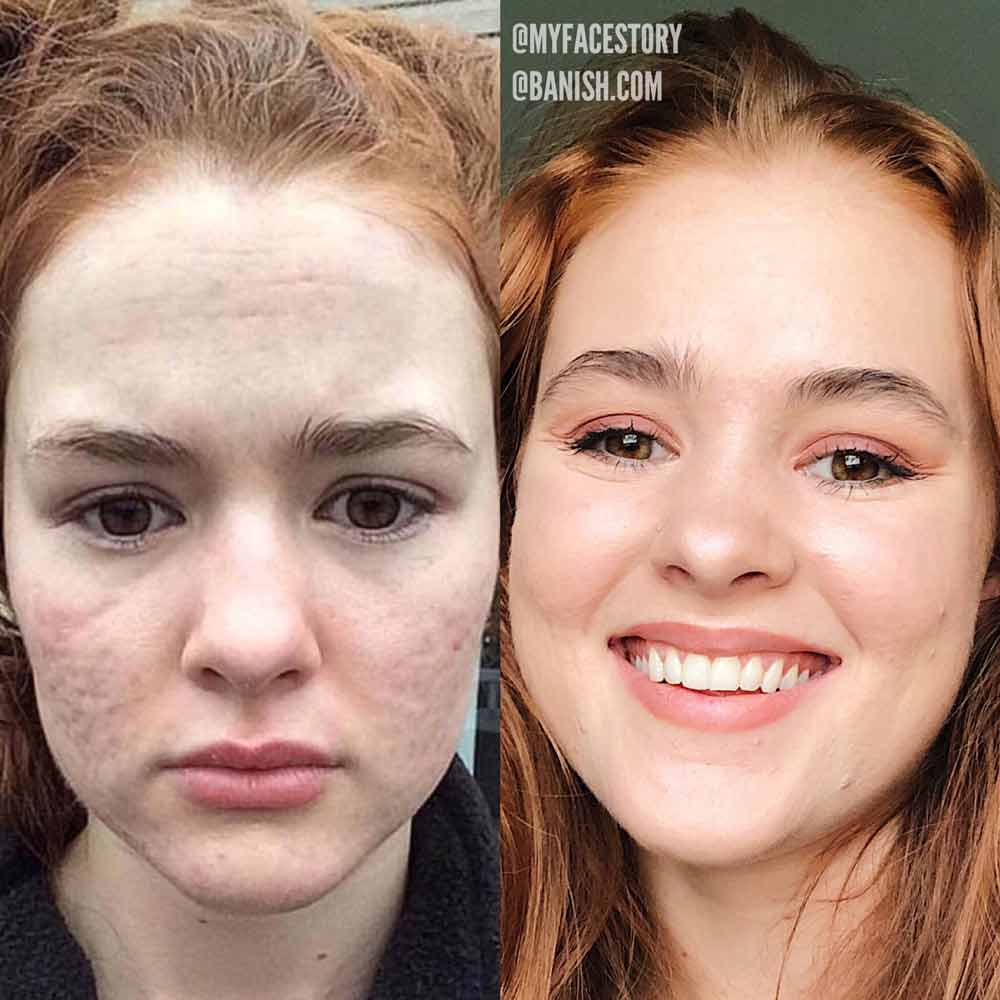The Influence of Skin Disease on Self-confidence: Effective Methods for Dealing With Acne Marks
Skin problem, specifically acne, can profoundly affect a person's self-confidence, usually developing obstacles to social communications and personal expression. Acne marks act as a sticking around tip of past struggles, leading lots of to seek reliable therapy alternatives. While topical options and progressed skin-related strategies present feasible paths for renovation, the interaction in between treatment and mental health warrants even more exploration. Understanding just how these approaches can foster confidence might expose essential understandings right into alternative care strategies that empower individuals to welcome their skin and boost their overall top quality of life.
Mental Results of Acne
Acne, a widespread skin condition impacting millions worldwide, can have extensive emotional effects on individuals. The visible nature of acne frequently causes significant psychological distress, consisting of sensations of humiliation, low self-confidence, and social withdrawal. Lots of individuals with acne might experience anxiousness, particularly in social situations, where they fear judgment or adverse assumptions based upon their skin disease.
Research suggests that the mental impact of acne can be as debilitating as the physical signs, adding to anxiety and body dysmorphic disorders in many cases - acne scars treatment. Teens, who are commonly a lot more conscious peer viewpoints, might be particularly at risk, leading to damaging results on their social communications and academic performance
Furthermore, the preconception related to acne can intensify feelings of isolation, as individuals may view themselves as much less socially acceptable or eye-catching. This psychological worry can impede individual connections and total top quality of life. Therefore, it is essential for healthcare suppliers to deal with both the physical and mental facets of acne, supplying thorough support that includes therapy and educational resources to help people handle their condition efficiently.
Comprehending Acne Marks
Taking care of the aftermath of acne often involves facing the scars it leaves, which can be a substantial resource of disappointment and psychological distress for numerous people. Acne marks can show up in numerous forms, primarily categorized right into atrophic, hypertrophic, and keloid marks. Atrophic marks are defined by a loss of tissue, resulting in clinical depressions in the skin, while hypertrophic marks involve elevated cells that establishes in feedback to inflammation. Keloid scars, a more serious form, expand past the initial website of injury, providing an unique challenge for treatment.
Skin kind and genes likewise play critical roles in scar advancement. Understanding the organic systems behind scar formation assists in addressing the psychological consequences, as individuals may regard their marks as permanent markers of a past battle.

Topical Treatment Alternatives
While different treatment strategies exist for resolving acne marks, topical choices are commonly the first line of defense for people looking for to enhance their skin's look. These therapies can be efficient in minimizing the visibility of marks and promoting general skin health.
Typical topical representatives consist of retinoids, which boost cell turnover and encourage the regeneration of skin cells, thereby boosting structure and tone. In addition, alpha hydroxy acids (AHAs) and beta hydroxy acids (BHAs) exfoliate the skin, getting rid of dead skin cells and advertising a smoother surface.
An additional prominent option is vitamin C serums, recognized for their antioxidant residential properties and ability to brighten skin, which can help reduce the appearance of hyperpigmentation connected with acne scars. Hyaluronic acid is also advantageous; it hydrates the skin and can plump locations affected by scarring.
Non-prescription items having ingredients like niacinamide and licorice remove may also assist in lowering swelling and staining. It is crucial for individuals to talk to a dermatologist to determine one of the most suitable topical treatments tailored to their special skin kind and mark attributes, making best use of the capacity for efficient outcomes.
Advanced Dermatological Procedures
For individuals looking for more instant and substantial renovation in the appearance of acne scars, progressed dermatological treatments provide a series of effective options. These treatments are developed to target much deeper skin layers, cultivating significant skin regrowth and makeover.
One preferred method is laser treatment, which makes use of focused light to resurface the skin and reduce the look of marks. Fractional laser treatments, specifically, are efficient as they promote recovery while targeting details areas, lessening downtime. Chemical peels off, which involve the application of acidic options, can also be valuable by scrubing the skin and promoting brand-new cell why not check here development.
Microneedling is another ingenious choice, involving using great needles to develop micro-injuries that promote collagen production. This procedure improves skin appearance and minimizes the presence of scars in time (acne scars treatment). Additionally, dermal fillers might be utilized to raise depressed marks, providing prompt quantity and smoothing the skin's surface
These progressed treatments should constantly be carried out by certified skin doctors, who can tailor treatments to individual skin types and scar qualities, ensuring optimum outcomes and decreasing threats. Just like any clinical treatment, thorough consultation and consideration of potential negative effects are crucial.
Building Confidence With Treatment

Establishing a customized skin care routine that consists of both topical treatments and professional interventions is important. Normal cleansing, peeling, and moisturization can aid maintain healthy and balanced skin, while procedures such as chemical peels or laser treatment may supply much more remarkable outcomes. Past physical therapies, embracing an alternative method that includes healthy and balanced way of living choices-- such as balanced nourishment, hydration, and stress administration-- can further improve skin health and confidence.
Furthermore, assistance from dermatological professionals can empower people to navigate their treatment options efficiently. Sharing experiences with others facing similar obstacles can promote a sense of neighborhood and resilience. Eventually, building self-confidence with care includes a diverse approach that focuses on both skin click this wellness and emotional support, resulting in a renewed sense of self-regard and individual gratification.
Final Thought
Acne and its resultant marks can exceptionally influence an individual's self-confidence and social communications. Ultimately, dealing with both the physical and emotional elements of acne marks is crucial for cultivating positive self-image and well-being.
